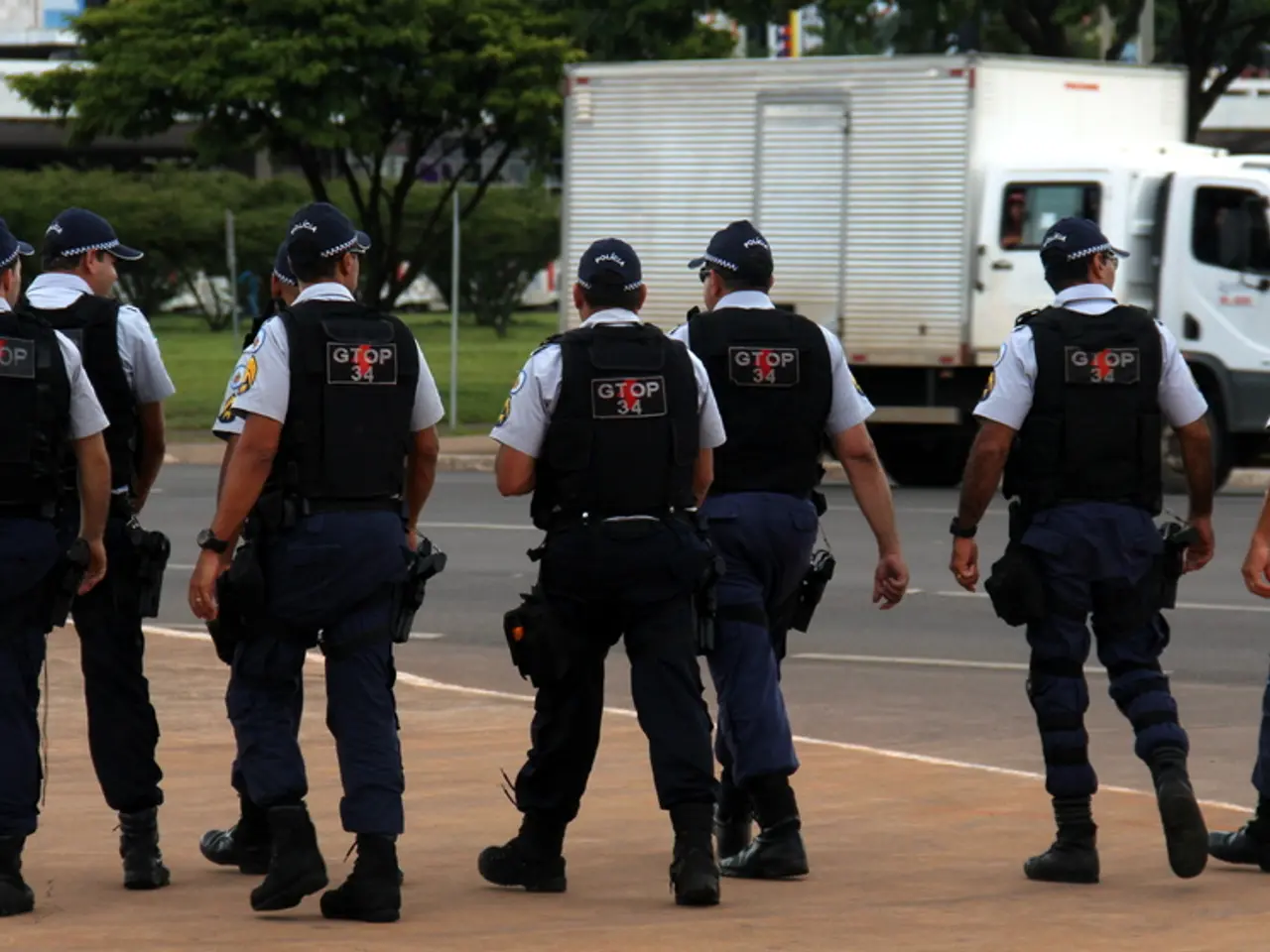Deputies from the Sheriff's Office faced disciplinary action due to their interaction in a Signal chat group with ICE, which eventually resulted in a teenager's apprehension.
Mesa County Sheriff's Deputy Alexander Zwinck is facing a lawsuit filed by Colorado Attorney General Phil Weiser for violating state law by cooperating with federal immigration authorities. The lawsuit stems from Zwinck's role in the June 5, 2025, traffic stop of Caroline Dias Goncalves, which resulted in her immigration detainment despite no criminal activity on her part.
The incident came to light following an investigation that revealed Zwinck shared Dias Goncalves' personal information with ICE agents via a Signal group chat, which included members from the Mesa County Sheriff's Office (MCSO), Homeland Security Investigations, Immigration and Customs Enforcement, Drug Enforcement Agency, Colorado State Patrol, and other local law enforcement agencies.
As a result of the investigation, Zwinck was disciplined by being placed on three weeks of unpaid leave and removed from his drug task force assignment. Other deputies involved have also faced disciplinary actions, with Deputy Erik Olson being placed on two weeks of unpaid leave, dismissed from the Western Colorado Drug Task Force, and reassigned to patrol. Sgt. Joe LeMoine was suspended without pay for two days.
Sheriff Todd Rowell, who expressed regret about the incident and apologized to Dias Goncalves, has requested that the Attorney General dismiss the lawsuit against Zwinck. Rowell argues that internal discipline and enhanced training should suffice and that the lawsuit unfairly singles out Zwinck while others in the chat have not been sued.
The Attorney General’s lawsuit seeks to prevent Zwinck from engaging in similar actions in the future, emphasizing Colorado's dedication to limiting law enforcement roles to public safety and prohibiting involvement in federal immigration enforcement outside of their criminal duties. Sheriff Rowell contends that the legal responsibilities under Colorado Senate Bill 25-276 require more training and clarity for local law enforcement and criticizes the suit as sending a demoralizing message to officers statewide.
Caroline Dias-Goncalves, a 19-year-old college student, was detained by immigration officers after a sheriff's deputy pulled her over during a traffic stop. She spent 15 days at the Denver Contract Detention Facility before being released on bond. The facility has been accused of inmate mistreatment and wrongful death in multiple lawsuits.
Colorado Senate Bill 25-276 prohibits coordination between state law enforcement and federal law enforcement, and Colorado Senate Bill 21-131 restricts state agencies from sharing personal identifying information with immigration officers. Colorado State Patrol Chief Matthew C. Packard also released a statement, claiming that the patrol has stopped using the chat "due to an apparent lack of shared purpose."
Sheriff Rowell has called on HSI to release all of the messages in the Signal chat to shed light on the incident and ensure accountability. The legal case is active, with Zwinck disciplined administratively and sued by the state, while local leadership calls for dismissal of the suit and focus on training and internal discipline.
- The attorney general's lawsuit against Deputy Alexander Zwinck aims to prevent him from engaging in future actions that involve federal immigration enforcement, aligning with Colorado's dedication to limiting law enforcement roles to public safety and prohibiting involvement in federal immigration enforcement outside of their criminal duties.
- The incident involving Mesa County Sheriff's Deputy Alexander Zwinck, where he shared personal information of Caroline Dias Goncalves with federal immigration authorities via a Signal group chat, has sparked a debate about the roles of law enforcement and the sharing of personal identifying information with immigration officers, as outlined in Colorado Senate Bill 21-131.








